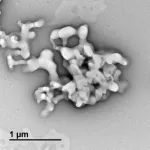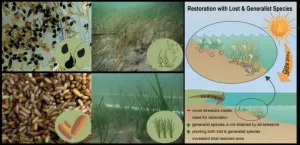(Press-News.org)
A substantial proportion of the world’s population remains willing to get vaccinated against diseases including COVID-19, according to a new survey across 23 countries that represent more than 60% of the world’s population. The study, published in Nature Medicine, was co-led by the Barcelona Institute for Global Health (ISGlobal), a centre supported by “la Caixa” Foundation, and the Graduate School of Public Health and Health Policy of the City University of New York (CUNY SPH).
The severe human impact of the COVID-19 pandemic led to the rapid research and development of safe and effective vaccines based on existing models, and resulted in the largest vaccination campaign in history. Just one year after COVID-19 was declared a pandemic, more than 250 million people worldwide had been vaccinated against SARS-CoV-2, the virus that causes it.
Although no longer considered a significant public health threat, the virus continues to circulate and mutate. This means that variant-adapted boosters are still needed, especially for the many people at higher risk of severe disease and death.
“Today, vaccine hesitancy, pandemic fatigue and vaccine fatigue are major challenges to ensuring that people stay up to date with their vaccinations, including COVID-19 boosters” says Jeffrey V. Lazarus, head of the Health Systems Research Group at ISGlobal, Professor of Global Health at CUNY SPH, and coordinator of the study.
Vaccine confidence remains high
Through a series of annual surveys across 23 countries over the course of the pandemic, Lazarus and his colleagues have been assessing global trust in information sources and vaccines. In this fourth survey of 23,000 adults, conducted in October 2023, the research team found that the intent to get a COVID-19 booster was slightly lower (71.6% of respondents) compared to 2022 (87.9%). However, the global population’s overall trust in vaccination did not diminish. More than 3 in 5 participants (60.8%) said they were more willing to get vaccinated for diseases other than COVID-19 as a result of their experience during the pandemic, while only 23.1% were less willing.
“This finding suggests there is a general openness to vaccination that can be used to boost confidence in new generations of COVID-19 vaccines and boosters,” says Ayman El-Mohandes, study co-author and Dean of the City University of New York School for Public Health & Health Policy. “We must design targeted messages for trusted communicators to encourage vaccine uptake.”
The new survey also evaluated public trust in information sources used during the pandemic. Overall, the most trusted sources were healthcare providers (with a score of 6.9 out of 10) and the World Health Organization (6.5 out of 10), highlighting the importance of continuing to rely on these sources in future communication campaigns. There was, however, some variability between countries. For example, religious leaders ranked 3.16 in Sweden but 6.72 in India.
Public trust in the ability of authorities, scientists, and health organisations to manage future pandemics presented a mixed picture. “The great variability of trust observed across countries makes it clear that improving vaccine confidence globally will require more culturally appropriate local communication strategies,” says Lazarus. “There is an urgent need to catch up on routine immunisations and prepare for potential new pandemic threats, so we must continue to monitor vaccine confidence,” he adds.
The survey data are highly representative for different geographic regions in the world and different demographic groups (age, gender, education level) within each country.
Reference
Lazarus, J.V., White, T.M., Wyka, K. et al. Influence of COVID-19 on trust in routine immunization, health information sources and pandemic preparedness in 23 countries in 2023. Nat Med (2024). https://doi.org/10.1038/s41591-024-02939-2
END
An entirely new approach to inhibiting DNA-cleaving enzymes works through the aggregation of an otherwise non-toxic molecule. This Kobe University discovery may lead to a much-needed method for curbing Streptococcus growth.
Enzymes are the body’s tools to make almost all reactions happen. But the same is true for bacteria like Streptococcus, which causes toxic shock syndrome, a rapidly progressing and deadly condition. When the body’s white blood cells try to capture the bacteria by casting nets made out ...
What do the flow of cars on a highway and the movement of bacteria towards a food source have in common? In both cases, annoying traffic jams can form. Especially for cars, we might want to understand how to avoid them, but perhaps we've never thought of turning to statistical physics, as Alexandre Solon, a physicist from Sorbonne Université, and Eric Bertin, from the University of Grenoble, both working for the Centre national de la recherche scientifique CNRS, have done. Their research, recently published in the Journal of Statistical Mechanics: Theory and Experiment (JSTAT), has developed a one-dimensional mathematical model ...
New research demonstrates that seagrass habitat restoration can be enhanced by including other grasses in addition to the declining or lost species and – ultimately – that restoration efforts must proactively select species that can withstand current and intensifying stressors driven by human activities and climate change.
Rising global temperatures combined with centuries of humans working within our seascapes has reshaped coastal ecosystems. Rebuilding or restoring coastal habitat is becoming ...
New research co-authored by a UC Riverside business professor provides some sound advice for managers of retail outlets that limit their product selection to a particular brand: Managers should factor in the strength of their brand when structuring the pay incentives for their sales staff.
The study focused on what marketing scholars call “brand-managed” retail operations. These outlets include “stores within stores,” such as counters in major department stores with dedicated sales staff that offer just one brand of cosmetics such as Clinique. They can also be stores ...
The fearsome, saber-like teeth of Smilodon fatalis — California's state fossil — are familiar to anyone who has ever visited Los Angeles' La Brea Tar Pits, a sticky trap from which more than 2,000 saber-toothed cat skulls have been excavated over more than a century.
Though few of the recovered skulls had sabers attached, a handful exhibited a peculiar feature: the tooth socket for the saber was occupied by two teeth, with the permanent tooth slotted into a groove in the baby tooth.
Paleontologist Jack Tseng, associate professor of integrative biology at the University of California, Berkeley, doesn't think the double fangs ...
When COVID-19 caused significant economic disruptions, thousands of people around the world experienced sudden shocks to their financial situation through reduced earnings or job losses.
Now economic researchers at the University of South Australia have examined the mental health effects on people who experienced immediate or expected financial setbacks during the height of the pandemic.
Data gathered from China, Japan and South Korea during the early phases of the pandemic revealed that the severe economic shocks induced by COVID-19 caused significant ...
A healthy lifestyle may offset the effects of life-shortening genes by more than 60%, suggests an analysis of the findings from several large long term studies, published online in the journal BMJ Evidence Based Medicine.
While genes and lifestyle seem to have an additive effect on a person’s lifespan, an unhealthy lifestyle is independently linked to a 78% heightened risk of dying before one’s time, regardless of genetic predisposition, the research indicates.
The polygenic risk score (PRS) combines ...
Frequent teen vaping might boost the risk of exposure to lead and uranium, potentially harming brain and organ development, suggests research published online in the journal Tobacco Control.
The findings underscore the need for implementation of regulations and prevention efforts targeting teens, emphasise the researchers.
Vaping is popular with teens. In 2022, an estimated 14% of US high school students—around 2.14 million—and more than 3% of middle school students—around 380,000—reported vaping in the preceding month, note the researchers.
Certain metals have been identified in e-cigarette aerosols and ...
Inhaling the synthetic opioid fentanyl may cause potentially irreversible brain damage (toxic leukoencephalopathy), warn doctors in the journal BMJ Case Reports, after treating a middle aged man found unresponsive in his hotel room after snorting the drug.
Leukoencephalopathy refers to inflammation and damage to the brain’s white matter—the network of nerve fibres that enable the exchange of information and communication between different areas of the brain’s grey matter.
Toxic leukoencephalopathy is a sudden or longstanding neurological syndrome, which ...
The man arrived unconscious and near death.
Previously healthy with no known medical history, the 47-year-old arrived by ambulance to the emergency department at Oregon Health & Science University on Feb. 25, 2023. He was found collapsed in his hotel room, where he was staying during a business trip. As clinicians began administering life-saving treatment, they searched for the cause.
In a case report published online today in the journal BMJ Case Reports, clinicians laid out the surprising and unprecedented diagnosis: toxic ...




